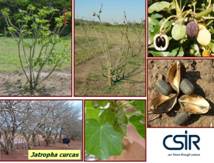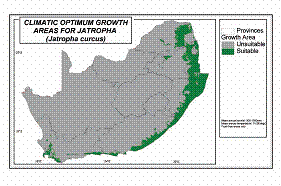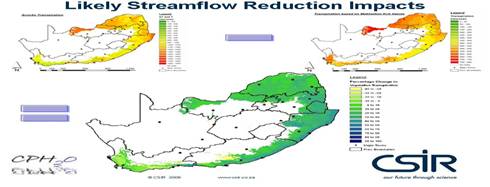South Africa Conference & Workshop
Protea Hotel, Wonderes, Illovo, Johannesburg 28 - 30 Janurary 2010
Presenter Biographies
MARK GUSH
CURRICULUM VITAE
 Mark Gush has worked for the CSIR in Pietermaritzburg for 12 years, as part of their ecophysiology research group. He studied forestry at Stellenbosch University, and subsequently completed Honours and Masters degrees in Hydrology at the University of KwaZulu-Natal. He is currently writing up a PhD from the University of Cape Town based on the water use efficiency of indigenous tree species in South Africa. His career interests include measuring and modeling plant water use and growth, as well as land-use hydrology, at scales ranging from single trees to whole catchments.
Mark Gush has worked for the CSIR in Pietermaritzburg for 12 years, as part of their ecophysiology research group. He studied forestry at Stellenbosch University, and subsequently completed Honours and Masters degrees in Hydrology at the University of KwaZulu-Natal. He is currently writing up a PhD from the University of Cape Town based on the water use efficiency of indigenous tree species in South Africa. His career interests include measuring and modeling plant water use and growth, as well as land-use hydrology, at scales ranging from single trees to whole catchments.
DESCRIPTION OF PRESENTATION
Topic
Jatropha curcas: Assessing the potential water resource impacts of large-scale production in South Africa
Brief Description
In response to rising oil prices and the quest for alternative, economically viable and environmentally sustainable forms of energy, plant species with bio-energy potential such as Jatropha curcas have been proposed for large-scale planting and bio-fuel production. However, extremely limited data is available on the potential environmental impacts (specifically water-use) of J. curcas. Accurate estimates of water-use are fundamental to gaining a good understanding of the hydrological impacts of a specific plant species or vegetation type; especially should it be planted extensively. In response to the proposed introduction of J. curcas to South Africa, field experiments were conducted to investigate its likely water-use impacts relative to other forms of vegetative land use. As no existing water-use data could be found for this species worldwide, sap flow (water-use) in J. curcas trees was measured continuously for a 17-month period at various sites in eastern South Africa. These consisted of young (4-year old) trees at a relatively wet site and mature (12-year old) trees at a dry site. Sap flow rates varied according to tree age, season, prevailing meteorological conditions, and soil moisture levels. Peak sap flow rates occurred during the warm wet summer months, but due to the deciduous nature of the species, water-use was negligible during winter. Additional total evaporation (Et) measurements were also conducted for a year above a J. curcas trial near Pietermaritzburg, and confirmed the low water-use rates. Results from these measurements were combined with modelling exercises in an attempt to evaluate water resource impacts over a wider scale. It was concluded that the J. curcas trees studied were conservative in their water use, and were unlikely to transpire more water than indigenous vegetation types. However, it was also concluded that a holistic view of other potential environmental impacts as well as socio-economic considerations (e.g. food security and the relationship between water-use and production) were also important considerations.
References
Jewitt, G.P.W., Wen, H.W., Kunz, R.P. and Van Rooyen, A.M., 2009. Scoping Study on Water Use of Crops/Trees for Biofuels in South Africa. Report to the WATER RESEARCH COMMISSION, WRC Report No. 1772/1/09 (ISBN 978-1-77005-884-2).
Gush, M.B., 2008. Measurement of water-use by Jatropha curcas L. using the heat-pulse velocity technique. Water SA, Vol. 34, no. 5: 579-583. (ISSN: 0378-4738).
Jarmain, C., Everson, C.S., Savage, M.J., Mengistu, M.G., Clulow, A.D., Walker, S. and Gush, M.B., 2008. Refining tools for evaporation monitoring in support of water resources management. WRC Report No. 1567/1/08, Water Research Commission, Pretoria, South Africa (ISBN: 978-1-77005-798-2).
Holl, M.A., Gush, M.B., Hallowes, J. and Versfeld, D.B., 2007. Jatropha curcas in South Africa: An assessment of its water use and bio-physical potential. Report to the Water Research Commission. WRC Report No 1497/1/07 (ISBN: 978-1-77005-593-3).
SLIDES FROM PRESENTATION
 |
 |
 |
 |
 |
RELATED PROJECTS AND SUCCESS STORIES
Involvement in Similar Projects
An investigation into the impacts of large-scale planting of Jatropha curcas on water resources, through process-based research and modelling – Water Research Commission (April 2004 – March 2007).
Agro-forestry systems for improved food production through the efficient use of water. Establishment of Jatropha curcas / kikiyuy silvo-pastoral research trial – Water Research Commission (April 2002– present).
Success Stories
Successfully established and maintained a 3ha Jatropha curcas / kikuyu pasture agro-forestry research trial near Pietermaritzburg, KZN where water-use, tree growth and seed yield have been carefully monitored over the last 4 years.
Other related endeavours in South Africa in the renewable energy sector.
Water Research Commission Project:
Title: WATER USE OF CROPPING SYSTEMS ADAPTED TO BIO-CLIMATIC REGIONS IN SOUTH AFRICA AND SUITABLE FOR BIO-FUEL PRODUCTION.
Implementing agents: University of KwaZulu-Natal, CSIR and University of Pretoria
Duration: 2009 – 2014